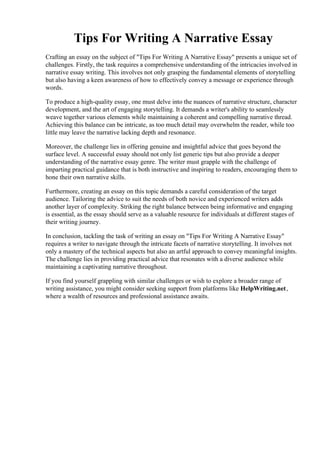
Introduction:
In the competitive landscape of college scholarships, a well-crafted essay can be the differentiating factor that sets you apart from other applicants. While academic achievements and extracurricular activities are undoubtedly important, the personal essay offers a unique opportunity to showcase your individuality and connect with the scholarship committee on a personal level. In this blog post, we’ll explore the art of writing a great college scholarship essay by sharing personal details that resonate with the reader.
Understanding the Purpose:
A scholarship essay is not just a recitation of your accomplishments or a list of your grades; it’s an opportunity to tell your story. The committee wants to understand who you are beyond the numbers and achievements, to connect with your experiences, values, and aspirations. Sharing personal details allows you to create a genuine and memorable narrative that can leave a lasting impression.
- Start with Reflection:
a. Self-Discovery: Before you start writing, take the time to reflect on your life experiences, challenges you’ve overcome, and the lessons you’ve learned. What makes you unique? What values drive your decisions? Understanding these aspects will help you convey a genuine and authentic story.
b. Identify Key Themes: Consider the key themes or messages you want to convey in your essay. These could include resilience, determination, passion for a particular field, or a commitment to community service. Align these themes with the scholarship’s objectives to ensure relevance.
- Craft a Compelling Introduction:
a. Hook the Reader: Begin with an attention-grabbing introduction that captivates the reader’s interest. This could be a personal anecdote, a thought-provoking quote, or a compelling question that sets the tone for the rest of your essay.
b. Thesis Statement: Clearly articulate the main point or thesis of your essay in the introduction. This provides the reader with a roadmap for what to expect and helps maintain focus throughout the essay.
- Weave Personal Details into the Narrative:
a. Show, Don’t Just Tell: Rather than listing achievements, use vivid and specific examples to illustrate your points. Describe personal experiences, challenges, or moments that have shaped your character and influenced your goals.
b. Be Vulnerable and Honest: Don’t be afraid to be vulnerable. Share moments of uncertainty, failure, or personal growth. Honest storytelling fosters a connection between you and the reader, making your essay more relatable and memorable.
- Align with Scholarship Criteria:
a. Tailor Your Narrative: Ensure that the personal details you share align with the criteria set by the scholarship. Highlight aspects of your life that directly connect with the goals and values of the scholarship program.
b. Address Potential Concerns: If there are aspects of your academic or personal history that may be perceived as challenges, address them proactively. Use these moments to showcase resilience, growth, and determination.
- Demonstrate Future Impact:
a. Connect Past Experiences to Future Goals: Clearly articulate how your past experiences, values, and lessons learned have shaped your future aspirations. Demonstrate a clear understanding of how the scholarship will contribute to your academic and career objectives.
b. Highlight Community Involvement: If applicable, emphasize your commitment to giving back to your community. Scholarship committees often appreciate candidates who show a dedication to making a positive impact beyond their personal goals.
- Conclude with a Strong Closing:
a. Reinforce Key Themes: Summarize the key themes of your essay in the conclusion. Reinforce the connection between your personal narrative and the scholarship’s objectives.
b. End on a Powerful Note: Conclude with a powerful statement that leaves a lasting impression. This could be a call to action, a reflection on your journey, or a vision for the future.
- Revise and Seek Feedback:
a. Iterative Editing: Writing a compelling essay is often an iterative process. Revise your essay multiple times, focusing on clarity, coherence, and the overall impact of your narrative.
b. Seek Feedback: Share your essay with trusted peers, teachers, or mentors. Gather constructive feedback to refine your narrative and ensure that your personal details resonate with a diverse audience.
Conclusion:
Crafting a great college scholarship essay requires more than just showcasing your achievements; it demands a thoughtful and authentic exploration of your personal story. By sharing personal details that illustrate your character, values, and aspirations, you can create a narrative that stands out and resonates with scholarship committees. Remember, your essay is an opportunity to be more than a list of accomplishments; it’s a chance to be a storyteller, leaving a lasting impression that goes beyond the pages of your application





